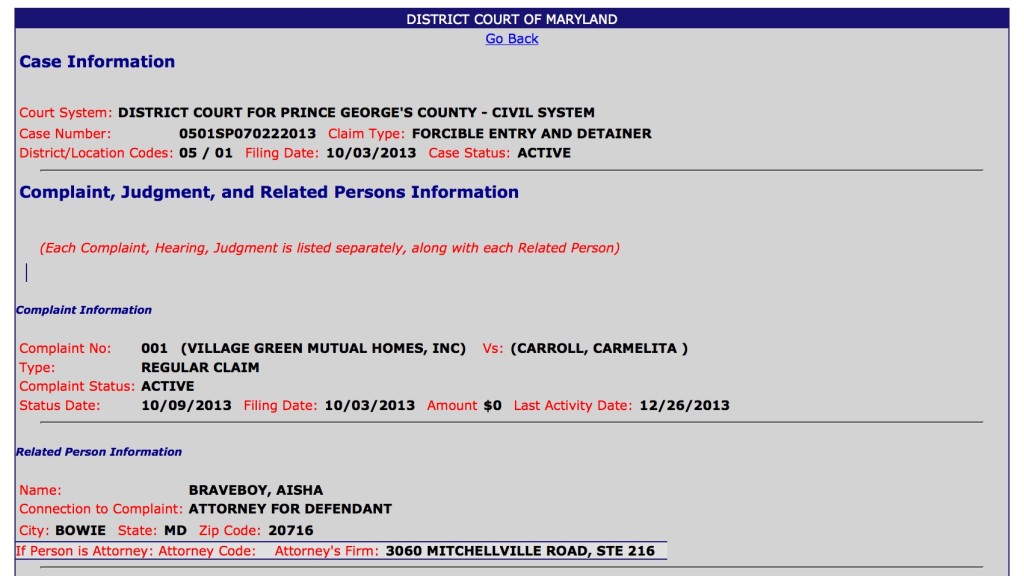Aisha Braveboy had such an profound change of heart on marriage equality that it affected her vote before it happened.
Part I publicized Del. Braveboy’s response to the questions raised about Planned Parenthood of Metro Washington (PPMW) Action Fund’s 100% rating in light of their question on marriage quality and Del. Braveboy’s past staunch opposition. Similarly, Part II posted PPMW’s press release.
Today, I explain why both responses are problematic.
Memory Lane
As PPMW outlined in their response, Del. Braveboy has a long history of opposition to not just marriage equality legislation but many other earlier efforts to advance LGBT equality.
In 2008, she so strongly opposed even basic LGBT rights that she even voted against hospital visitation and decision making rights for domestic partners. Del. Braveboy also voted against exemption from the property transfer tax for domestic partners in 2008. She voted against inheritance tax exemption for domestic partners in 2009.
And of course, Del. Braveboy voted against marriage equality in 2012, capping a long established record of consistent and emphatic opposition to equality for LGBT Marylanders.
Evolved or Expedient?
Del. Braveboy describes her views as having “evolved” like those of President Obama. Except that President Obama had a history of support for other LGBT rights besides marriage. He further had a public record of advocacy for treating LGBT individuals with basic dignity–not implacable opposition to LGBT rights and an array of negative public statements.
Moreover, President Obama “evolved” in advance of the 2012 referendum on the Maryland marriage equality legislation and his own reelection. In contrast, Del. Braveboy’s public change of heart occurred only after the referendum at a politically convenient moment for her attorney general bid. Sounds more like a Damascene conversion than evolution.
Additionally, Del. Braveboy explained her opposition to marriage equality in terms of her consistently expressed belief that it should be left up to the voters. An odd position for a candidate running for attorney general with the tagline of “Justice for All Marylanders” to suggest putting rights up for a vote.
And her story doesn’t add up. Del. Braveboy says that she changed her mind in advance of the referendum and cast her vote for marriage equality. She ascribes her change of heart to her experience during her pro bono representation of “a same-sex couple in a case where a cooperative housing association attempted to force one of the partners out of their family home and refused to recognize their familial relationship.”
Except that a search of the Maryland Judicial Database reveals that the case, Village Green v. Carroll, cited by Del. Braveboy as a “defining moment” in her evolution on the issue, was filed in October 2013–well after the 2012 referendum:
Aisha Braveboy had such an profound change of heart on marriage equality that it affected her vote before it happened.
Planned Parenthood’s Response
PPMW deserves kudos for including the marriage equality question on their questionnaire and, more importantly, their steadfast support for LGBT rights. Additionally, their statement is at pains to indicate that Del. Braveboy’s opponent, Sen. Brian Frosh, has a far superior record on this issue.
And I agree with their view that we should welcome politicians who evolve toward more favorable positions. Nonetheless, since all of the Democratic candidates for AG are legislators in the General Assembly, asking a question based on how they voted on Question 6 in the privacy of the voting booth was a mistake.
The votes cast in the legislature were of far greater moment and also verifiable. That’s why virtually all interest groups develop legislative ratings based on roll-call votes. In this case, there is also no evidence of public support before the election when it might have helped in the fight to win the vote. Interest groups should care far more about actions than private thoughts.
Two Thought Experiments
Would Del. Braveboy–who consistently opposed LGBT rights and argued that it should be up to the voters–now be presenting herself as a supporter of LGBT rights or saying that we need to respect the will of the voters if the vote on Question 6 had gone the other way?
How would PPMW rate a candidate who had always opposed abortion rights but in a questionnaire just before the election said that she had a change of heart on the issue?

